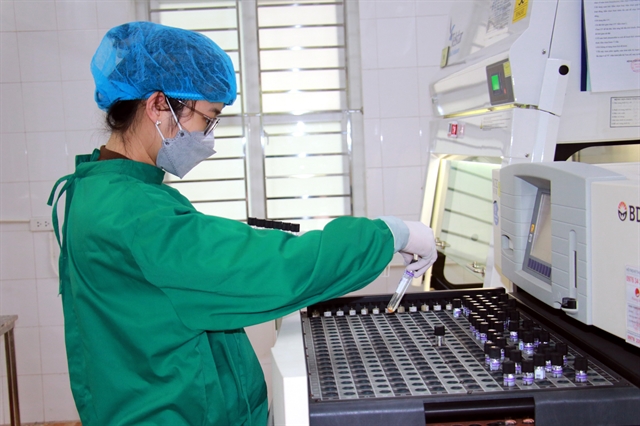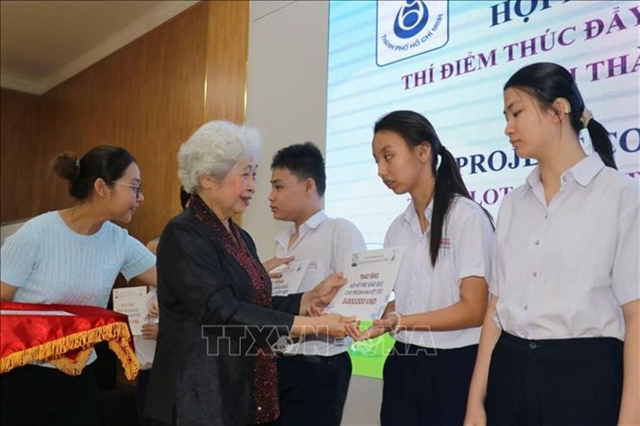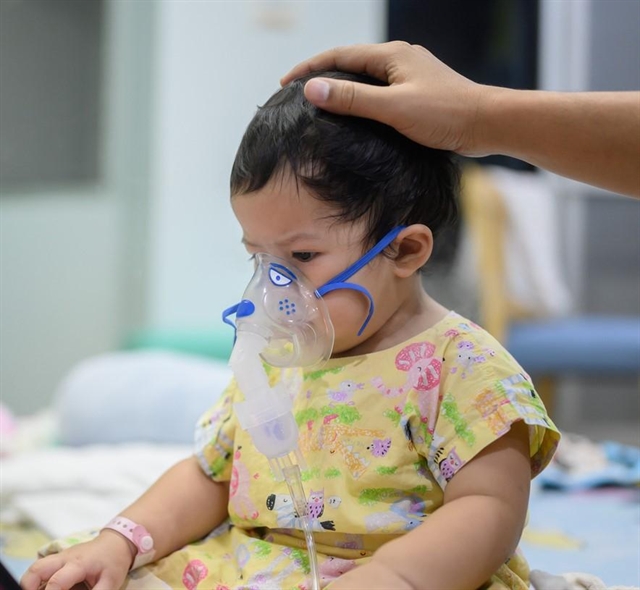 Society
Society

Dr Mattias Larsson & Dr Cynthia Dacanay*
This story is based on a real patient case, and highlights the importance of being aware of the health risks when travelling to different countries and the significance of vaccinations. It is essential for parents to be informed about the specific health recommendations for each region they visit with their child and to consider additional vaccinations if necessary.
Hoàng was a healthy and jolly boy, who was born full term in the US to Vietnamese parents. When he was one, he travelled with his parents to Việt Nam to visit their extended family.
 |
| Tuberculosis is very common in Việt Nam, hence the reason why BCG is recommended in all children before one month of age. Photo graphixchon via Canva.com |
After about a month in Việt Nam, he became sick with fever and a cough. They went to the local doctor who listened to the lungs and prescribed antibiotics. However, the antibiotics didn’t work, and the fever and cough continued.
Hoàng's parents then took him to a hospital where a chest x-ray revealed pneumonia. Hoàng was admitted and treated with intravenous (IV) antibiotics, and was discharged a few days later with reduced fever but persistent cough.
Several days later, he exhibited neurological symptoms such as rolling-up of the eyeballs and stiffening of the extremities and also had a convulsion.
The parents took Hoàng to Family Medical Practice that they had heard had international standard care. Immediate assessment, examination and treatment was given for convulsion. After learning about the successive unsuccessful antibiotic treatments for his prolonged cough, the doctor inquired if Hoàng had received the BCG vaccination for Tuberculosis, noting that he did not have the typical scar on the left upper arm.
The parents said that they had followed the US vaccination programme and did not realise their child would need additional vaccines before going to Việt Nam.
The paediatrician asked about possible exposure, whether Hoàng had met any persons with prolonged respiratory symptoms. His parents could remember that one of the relatives that they visited had a severe cough, but they did not think much about it at the time. After checking, they found out that their relative was recently diagnosed with Tuberculosis.
Tuberculosis is caused by a bacteria called Mycobacterium tuberculosis; it is mainly transmitted in droplets from the cough of an infected individual. The bacteria mainly infect the lungs but can also affect many organs such as the spine, brain, kidney and liver. It can be treated but it takes a long time, from six to 12 months depending on the site affected. Delayed diagnosis and treatment may lead to extensive involvement and progression which would result in severe health consequences. Tuberculosis is very common in Việt Nam, hence the reason why BCG is recommended in all children before one month of age. In the US, it is rare and therefore BCG vaccination is not given as part of the routine immunisation.
A thorough investigation with Hoàng's blood, sputum, cerebrospinal fluid, chest x-ray and brain MRI revealed that Hoàng contracted tuberculosis that initially affected his lungs and subsequently spread to his brain called tuberculous (TB) meningitis. Due to the infection, there was a build-up of fluid in the ventricles in the brain, which did not get absorbed the way it should and increased the pressure in his brain. The doctor explained that Việt Nam's health system has a specialised treatment programme for Tuberculosis in the lung hospital and that the best option would be to refer Hoàng for treatment there. The parents agreed and Hoàng was transferred to the lung hospital.
After an arduous year of treatment in the hospital, which involved several changes in the treatment regimen due to antibiotic resistance and a placement of a shunt to drain excess fluid from the brain to the abdomen to reduce pressure, Hoàng was finally sent home. He survived but with severe sequelae to his brain. At present, Hoàng is back in the US and undergoing further rehabilitation to regain lost developmental skills. Family Medical Practice
*Dr Mattias Larsson is a paediatric doctor at Family Medical Practice and associate professor at Karolinska Institutet and has a long experience in research on infectious diseases. He has worked with the Oxford University Clinical Research Unit and the Ministry of Health of Vietnam. He is fluent in English, Swedish, Vietnamese, German and some Spanish.
Dr Cynthia Dacanay, a member of the Philippine Medical Association since 2001, completed her training as a general paediatrician in 2005 and was inducted as a diplomat of the Philippine Pediatric Society in 2009. Prior to coming to Việt Nam in 2011, she was a pediatric consultant in several tertiary hospitals in the Philippines. She is a certified provider of Basic Life Support (BLS), Advanced Cardiac Life Support (ACLS) and Pediatric Advanced Life Support (PALS). She loves to travel and read books in her spare time.
FMP Healthcare Group operates medical centres in major cities including HCMC, Hà Nội, and Đà Nẵng, offering consultations with international doctors, check-up centres, and emergency ambulance services.
Visit FMP Hanoi 24/7 at 298I Kim Mã Street, Kim Mã Ward, Ba Đình District.
To book an appointment, please call us at (024).3843.0784, or contact us via Whatsapp, Viber or Zalo on +84.944.43.1919 or email hanoi@vietnammedicalpractice.com.




